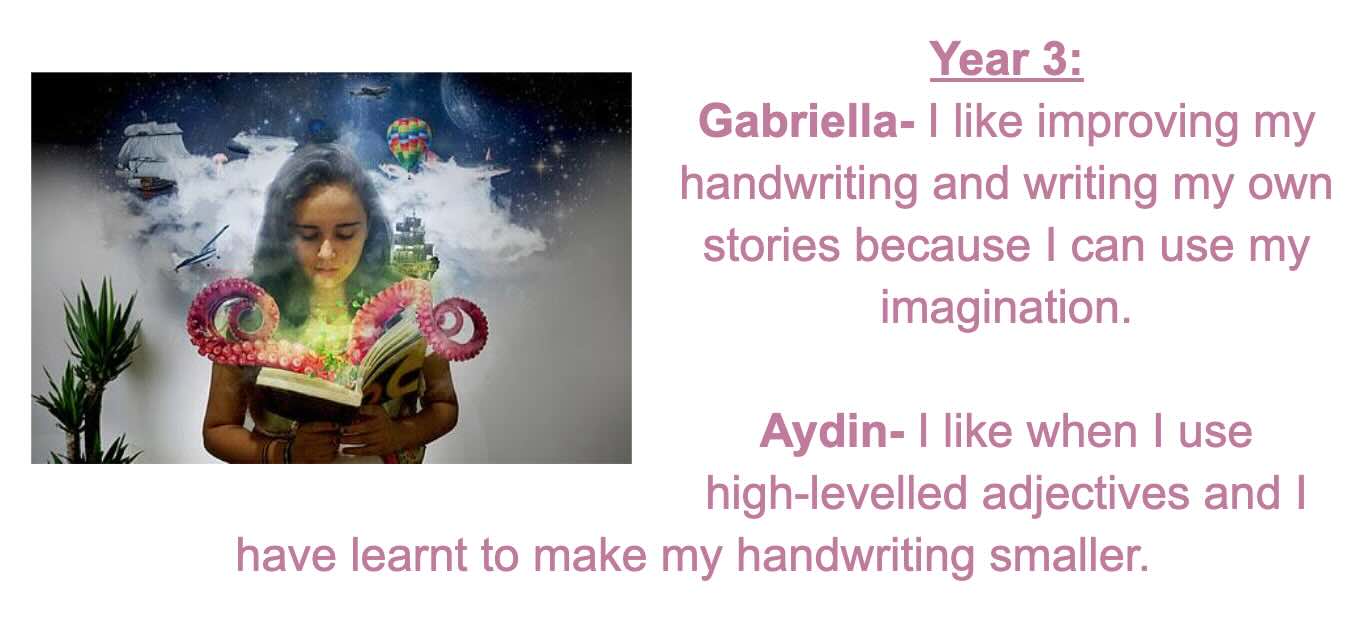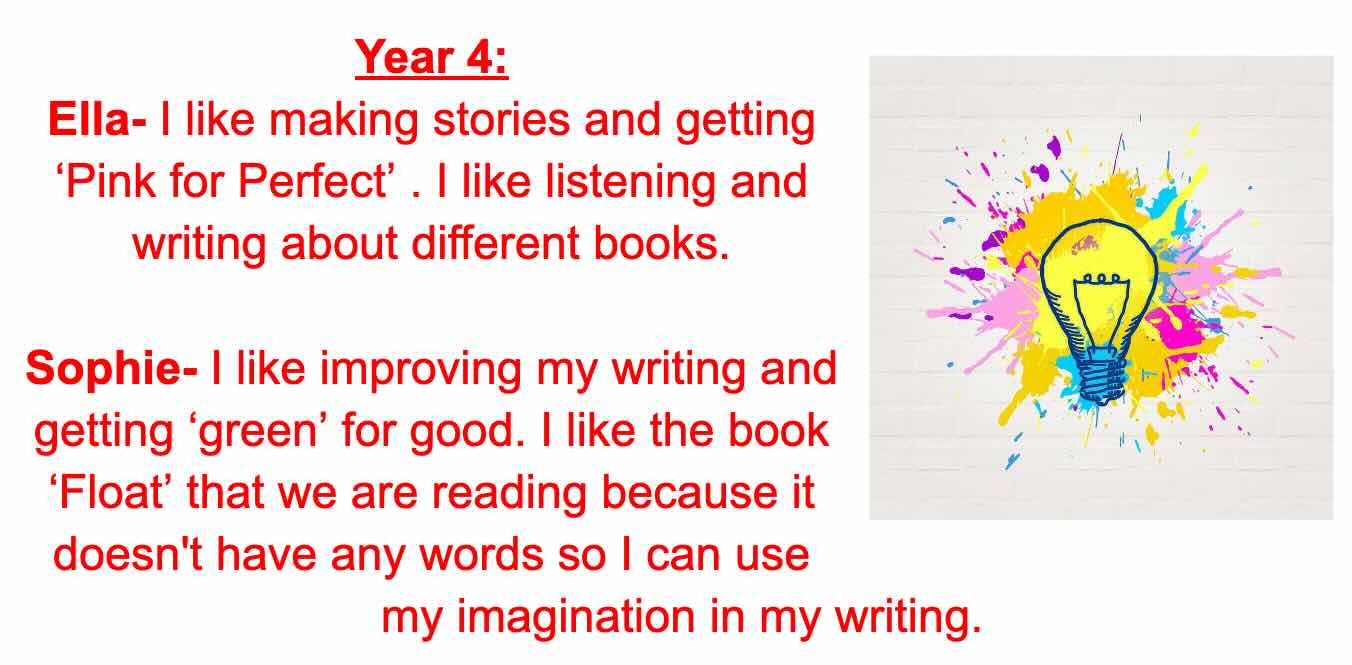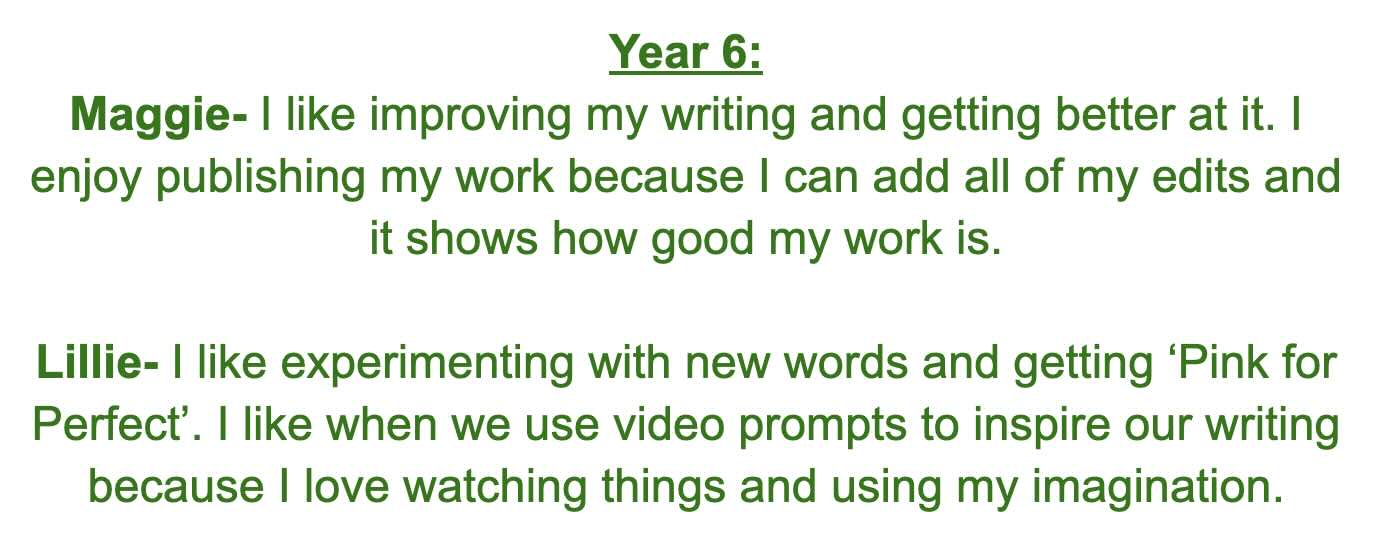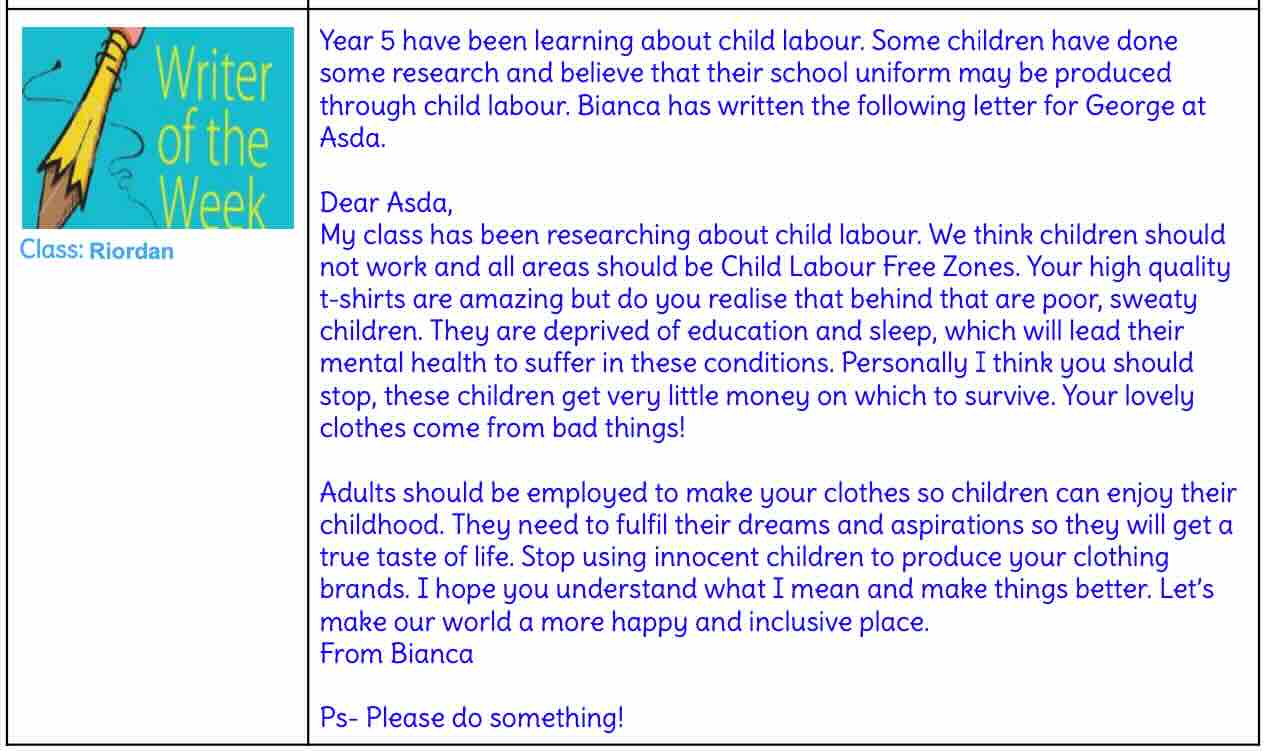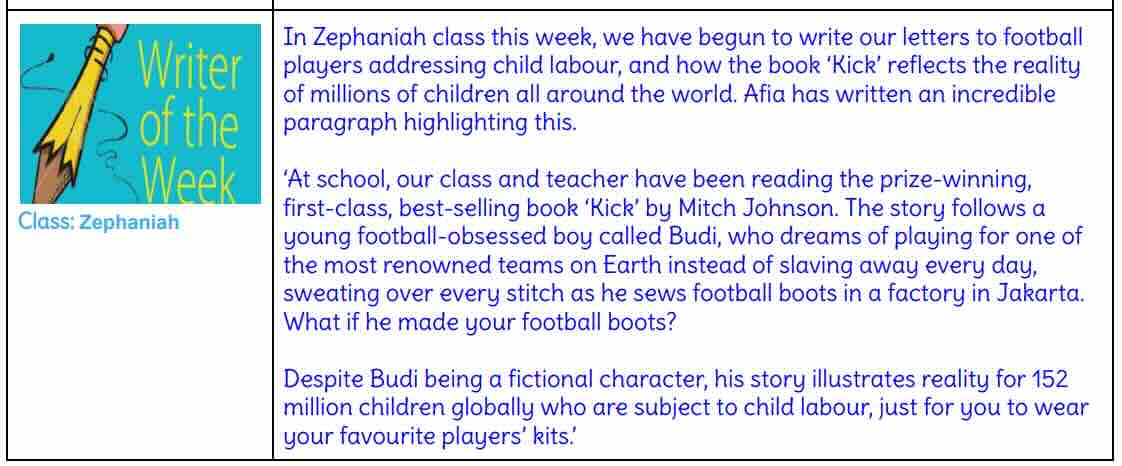Writing at The Leys
Writing is not a subject; it is part of reading, speaking and listening. Being a writer means being a reader, articulating stories and characters, listening to tales and learning from other writers. Through teaching exciting and engaging lessons you can help children to discover stories, create worlds, record events, mould characters and inspire each other as writers.
Our Vision
At The Leys Primary and Nursery school it is our Vision that every child is given the opportunity to excel in their writing through the use of exciting, engaging and active lessons driven by inspiring and motivated teachers. We believe this encouragement will enable the children to become confident writers who will develop a genuine love for writing.
We believe that the fundamental functions of language as a means of expressing feelings, establishing contact with others and bringing about desired responses, are crucial in underpinning life skills and all aspects of the curriculum. The children will use writing to express themselves creatively and be able to independently write for a wide range of different purposes and audiences. They will be able to reflect on their own and others' writing pieces and have a confident understanding that writing has a real purpose and that word choice and style can bring about change.
Intent:
- To assist children to write with confidence, fluency and understanding and develop their ability to self-monitor and correct.
- To provide a range of text types and genres to teach children to write in a variety of styles and for different purposes and audiences.
- To develop a growing vocabulary in spoken and written forms and create an interest to develop and understand new language and words.
- To enable children to understand and use different grammar and punctuation correctly and effectively.
- To promote and encourage children’s imagination and inventiveness.
- To provide all learners opportunities to write and access the writing curriculum regardless of need or characteristic/s.
Implementation:
- To plan well-structured lessons, using ‘The Write Stuff’ approach, which builds upon previous knowledge and understanding and has a clear progression, structure and outcome.
- To provide access to quality first teaching which is engaging and purposeful and ensure teachers have high aspirations for every pupil.
- To provide pupils with time to plan, monitor and evaluate their own work to identify their own successes and areas for development- allowing time for editing and upleveling.
- Teachers will carefully monitor, using questioning, mini plenaries and modelling, throughout every lesson, to help identify misconceptions quickly and efficiently and to ensure the early identification of those children who may be struggling with writing and put in the necessary additional support to help them.
- To promote the use of writing across the whole curriculum and link topics to writing lessons where appropriate.
- To ensure all children are supported through individual support, targeted intervention in class and scaffolding, e.g. word banks, a greater level of modelling, etc
- Grammar, punctuation and spelling knowledge and skills are taught through English writing lessons as much as possible. Teachers plan to teach the required skills through the genres of writing that they are teaching and plan additional lessons if required.
- Teachers use their professional judgement and the Teacher Assessment Frameworks for writing to determine whether a pupil is working at age-related expectations, above or below. The national TAFs are used for years 2 and 6 and the Herts for Learning TAFs are used for the other year groups.
Impact:
- Pupils become lifelong writers and storytellers.
- Pupils are able to express their ideas, feelings and understanding through writing.
- Pupils are able to write confidently for a variety of different purposes and genres across the curriculum and will continue to increase in resilience and independence when writing.
- All children will make progress in their writing regardless of their starting point including children with SEND.
- The teaching of writing is monitored through book scrutinies, learning walks, pupil voice and lesson observations.
- There is evidence of a clear sequence for the teaching of writing in pupils’ books.
- Pupils will acquire and be able to apply a wider range of vocabulary to their writing.
- Pupils will leave primary school being able to effectively apply spelling rules and patterns that they have been taught.
- We believe that through using quality texts for writing, pupils will foster a love for reading and an interest in reading for pleasure.
- The percentage of pupils working at age-related expectations within each year group will be at least in line with national averages.
- The percentage of pupils working at greater depth within each year group will be at least in line with national averages.
Click here to view some of our writing displays across the school
Here is some of our Writing throughout the school
'The Spook Squad' Writing Competition
The BBC 500 Words Competition
The BBC 500 Words Competition
Winter at The Leys
Our School Writing Documents:
Resources to help support at home:
Useful Websites:
What do our pupils say about their writing lessons?





